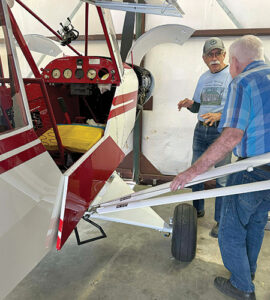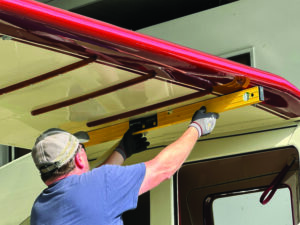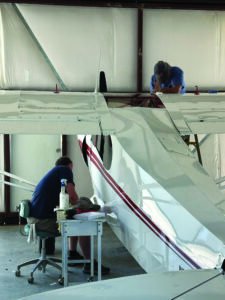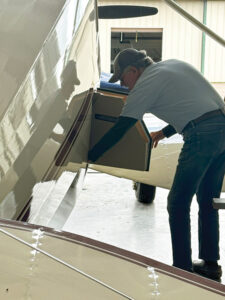By Lisa Turner, EAA Lifetime 509911
This piece originally ran in Lisa’s Airworthy column in the February 2025 issue of EAA Sport Aviation magazine.
Readers of this column know that a common theme around maintenance, aircraft building, and restoration is getting help when you need it. But the independent and pioneering personalities that many pilots and builders have may prevent them from fully engaging others in the process.
John Egan wrote an article for the Pathways column in the August 2024 edition of EAA Sport Aviation about the Technical Counselor program and how it is a terrific advantage to builders and restorers. If you are a participating member of an EAA chapter, it’s likely that you have had positive experiences with technical counselors (TCs) and with flight advisors (FAs).
If you’re not a participating member of an EAA chapter, then the likelihood of engaging a TC in your project is low. In my travels as a TC and FA at air shows and fly-ins, and wandering the airports and grass strips of fly-in communities, about 40 percent of the builders and restorers I talk with are not using a TC or an FA. Why?
Four years ago, I wrote an article about what can go wrong if builders don’t get expert help and review on their projects (“Safety Margins,” September 2020, EAA Sport Aviation). As an A&P mechanic, I’ve seen too many instances over the last 20-plus years of people not engaging a TC in their project and then having serious problems. Working with a TC doesn’t mean there won’t be problems, but it definitely improves and smooths the building process.
Recent discussions with builders and restorers revealed a general lack of knowledge about what a technical counselor can bring to a project. It’s not so much that these builders were uninformed, but that they had some misconceptions about what TCs do. To that end, I’m going to explain what the myths and the facts are around this foundational (and I would say indispensable) EAA resource.
MYTHS
It’s not about psychology. Myth. It is about psychology. So much of our success depends on how we feel about our project, how our family (if we have one) feels about our project, and how to handle setbacks. This is an important addition by a TC. No, TCs are not psychologists, and we don’t expect them to be. However, they can explain the building traps we may face and give us hope and confidence.
Asking a technical counselor to visit the project will slow you down. Myth. It will actually speed you up. Spending time at the beginning of a project to work out the kinks will deliver fewer kinks near the end.
A technical counselor doesn’t know your airplane. Myth. A TC doesn’t know your airplane, but they do know about your airplane. There are enough commonalities that we can make generalizations about hardware, materials, and regulations. Technical counselors don’t know all technologies, but you can identify someone who works with your particular materials.
A technical counselor can visit the project only three times. Myth. A TC may visit your project once or 10-plus times. It’s going to depend on what you need. Sometimes all you need may be a few phone calls. You’ll find that most TCs will do what it takes to help you be successful.
I’ll have to pay for a technical counselor’s travel. Myth. TCs are free. Each TC decides what they can contribute. They may not travel far because of their own particular circumstances, but they may also decide to travel and ask you to contribute toward their costs. This is an individual decision between the two of you.
The technical counselor may criticize your work. Myth. TCs will not criticize your work, because they know this will create tension in the relationship. What they will do is give you feedback on what they see and help you make corrections. If you’re uncomfortable with this, I’d take a step back and realize that this is all for your safety and enjoyment.
FACTS
Skills assessment. TCs are good at figuring out what you know, what you need help on, and how to help you improve.
Project planning. TCs can help you with planning. They’ve already been through the process, and they have a big-picture perspective that helps with time management. They can also advise you on how to organize your paperwork.
TCs and FAs don’t know everything. If you’re constructing a tube-and-fabric aircraft, then you will want to find a TC with this experience. The EAA does a good job of highlighting what the skills are for each TC listed in the directory.
Resources. Your TC and FA can help you identify what additional help you need to complete the project safely. They can identify videos, podcasts, books, or workshops for you to attend to help speed the project on.
Training. Most TCs and FAs will take the time to step you through a process and show you how to do something. On my projects, I had a TC who watched me do fiberglass work and then showed me a better way to do it. I didn’t realize I was applying too much resin to the cloth. The airplane would have been safe, but much heavier than it needed to be.
Technological Advancements. Most technical counselors and flight advisors stay informed on the latest technologies for experimental aircraft. In the last few years, for example, angle of attack indicators have become more affordable for small aircraft, and they are built into many glass panel electronic flight instrument systems. If you’re busy building, you might not know what things you can do to improve the safety of your flying at a relatively low cost.
Safety. In the end, it’s all about safety. Your TC and FA know this is their No. 1 job when they meet with you. If you see concern from your TC or FA, it’s likely to be a safety-related item. These are the things that jump out at them, like missing safety wire, wrong hardware and material applications, etc. This is the biggest reason for having others look at your work. We get so close to it we don’t see what’s wrong.
With all of this being said, there are good reasons some builders are not using a TC. The biggest one is a lack of availability. Some projects I visited have been a long drive into rural, almost unreachable, places. No wonder someone is building an airplane! They need it to get in and out of where they live. In these cases, it may be difficult to find someone who will go this far out of their way.
However, these same people in these remote locations have demonstrated surprising ability gained from going to workshops, talking on the phone with experts, finding A&P mechanic friends, and doing lots of reading. In every case, I’ve been impressed with the knowledge and skills of these independent builders.
Before you give up on finding a TC or FA, I’d exhaust all avenues. It’s worth it to offer reimbursement to some TCs who need to go out of their way to visit you. In any case, I’d find a few experts to put their eyes on your project, no matter how thorough you have been.
Another alternative to actual visits are virtual visits. These work surprisingly well. You need a smartphone connected to the internet and Wi-Fi. Walk the project with your phone camera — essentially using Facetime to show the work and ask the questions. The other alternative is to have an internet camera in the workshop that you can move around. Your TC can simply log into it and see what you’re doing. The advantage of this system is it leaves you with both of your hands available for following instructions or showing work.
Are you restoring a vintage experimental? You may need to do some searching, but you’re likely to find someone who can serve as your advisor for these types of projects, too. We have so many people in our flying and building communities who delight in helping others do what they have done.
I’ve spent a lot of time talking about technical advisors and not flight advisors. Many TCs are also flight advisors. If you can find a dual advisor, it’s great since you won’t have to get a flight advisor up to speed on your project. Plus, the TC has intimate knowledge of your project and can better advise you on the flight testing.
Without the framework and structure of the education and training surrounding homebuilding and restoring provided by EAA, it would be much more difficult to accomplish what we do as builders, restorers, and pilots. The safety record keeps getting better, and it’s because we’re paying attention. If you have the opportunity to engage a TC or FA in your project, you’ll be glad you did.
Lisa Turner, EAA Lifetime 509911, is a manufacturing engineer, A&P mechanic, EAA technical counselor and flight advisor, and former designated airworthiness representative. She built a Pulsar XP, a Kolb Mark III, and half of a RotorWay Exec helicopter. Her book, Dream Take Flight, details her Pulsar flying adventures. Lisa loves hearing from readers. Write her at Lisa@DreamTakeFlight.com.
